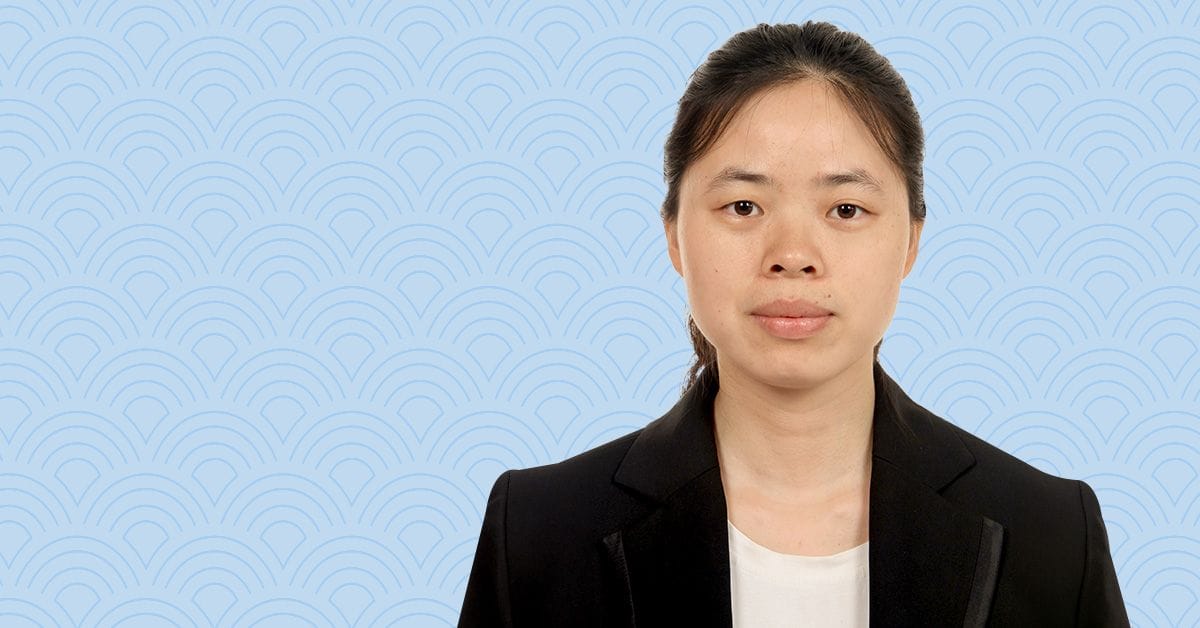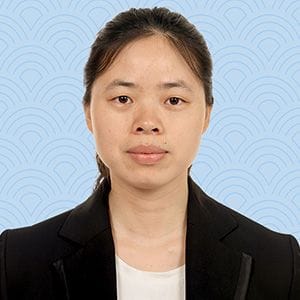In this interview, Dr. Duan discusses her current role as a collections development librarian at TU Eindhoven, her thoughts on read and publish agreements, and how her perspective on open access evolved during her time as a researcher.

As part of a new series here on ACS Axial, we’re interviewing authors and librarians from around the world to find out more about their research, their published work, and the impact that open science is having on a changing landscape of research communication. This time, we talked with Hongxia Duan, collections development librarian at TU Eindhoven.
I think it’s very important for us to communicate with publishers and form a clear strategy to achieve full open access in the future.

Hello, Hongxia – what can you tell us about your role at TU Eindhoven?
I have been a collection developer for about a year and a half, and I’m still learning a lot! Before that, I was a researcher in cognitive neuroscience at a university in China and later in the Netherlands. TU Eindhoven has a centralized library, so I’m handling provision of all the information resources for all the departments in our university—making sure they have access to the journals, books, newspapers, and databases they need.
When did you first hear the term 'open access'?
I first heard it when I was a researcher. Originally, I had a bit of a negative opinion about it because I noticed that some open access journals from other publishers were of pretty low quality. When I was a researcher in China, our university did not cover the APC (article publishing charge) for open access, so I often opted to publish behind a paywall. But my perspective changed after working in the Netherlands. Here, open access is required by research funders, and they actually support the open access process financially. This allows researchers to make articles immediately available to the public, which benefits everyone.
As a researcher, you have an internal motivation to conduct high-quality research, but your actions are sometimes influenced by the reward system. When I was in China, the reward system was based on how many papers you publish, and if the journals have a good reputation. But in the Netherlands, it’s different and maybe less demanding about publications, with more focus on diverse things that make a good researcher.
Your institution joined an ACS read and publish agreement as part of the Universities of the Netherlands consortium (SURFmarket BV). This was ACS' first read and publish agreement. What do you think the rationale was from your institution's perspective?
This was before I started at TU Eindhoven, but I think the institution-supported approach is for a good cause. It’s easy for researchers to make their work open access, and it allows members of the public to access science that they couldn’t before, which promotes the dissemination of scientific knowledge. This aligns with our institution’s commitment to advancing research and increasing its impact.
I attended a conference last year where a lot of transformative agreements were discussed, and there were lots of different opinions. An investigation from Jisc concluded that many transformative agreements will take a long time before they can move to full open access. I think it’s very important for us to communicate with publishers and form a clear strategy to achieve full open access in the future.
Finally - if you hadn't chosen your current career, what would you be doing?
I have been working in the University environment since I was 19 years old, first as a researcher and now as a scientific information specialist. I think I would still choose to stay in the university environment because it’s familiar, and the people I’ve met in my career are so nice! I also think open science is a really interesting topic, in particular citizen science—working with the public to get more data than you could get from a laboratory. Maybe if I had a different career path I would be more involved in open science!
Check out the other interviews in this series:
Ian Cousins, Stockholm University
Vojtěch Vaněček, Institute of Physics, Czech Academy of Sciences
Louise Otting, TU Delft
Kristine Horvat, University of New Haven
David W. McCamant, University of Rochester
Fernando Sartillo Piscil, Benemérita Universidad Autónoma de Puebla
Lillian Chong, University of Pittsburgh
Sue Cardinal, University of Rochester
Rubén Mendoza-Cruz, Universidad Nacional Autónoma de México
Alison Bradley, Partnership for Academic Library Collaboration and Innovation
Vesna Srot, Max Planck Institute for Solid State Research
Matt McDowell, Georgia Institute of Technology